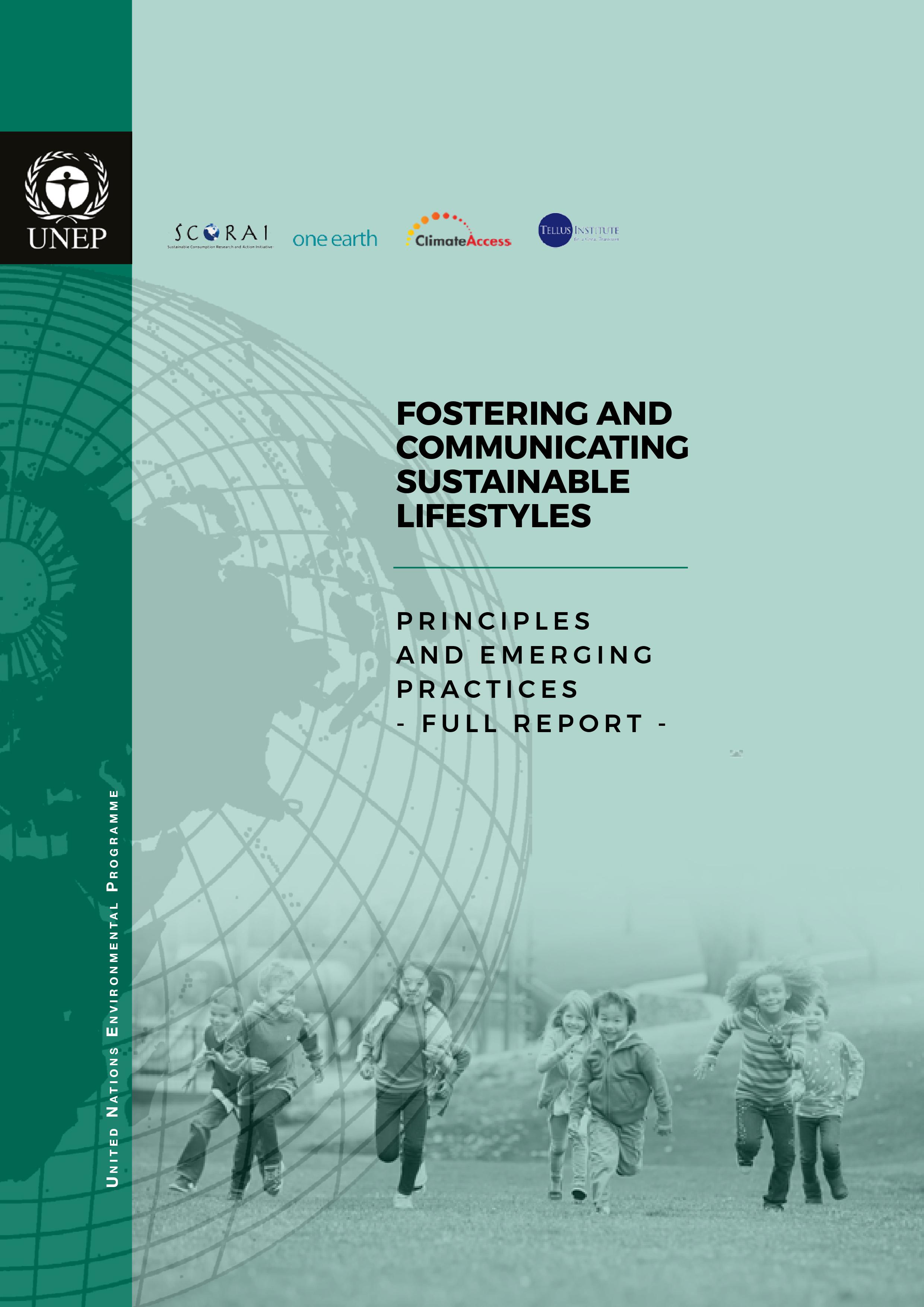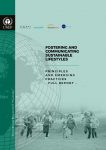The Fostering and Communicating Sustainable Lifestyles: Principles and Emerging Practices report furthers understanding of sustainable lifestyles to accelerate their widespread adoption. (Summary Report and Full Report attached)
This report offers a four step strategy roadmap for success with eight operating principles to guide the design, adaptation, and evaluation of sustainable lifestyles campaigns and initiatives as follows:
Step 1: Understand Audiences
Stakeholder-Focused: Engage in participatory, relevant, and grounded ways
Step 2: Set Goals
Better Living: Focus on aspirations
Impact: Set clear goals and demonstrate sustainability results
Step 3: Determine Strategies
Systemic: Consider the systemic nature of lifestyles
Dynamic Life Changes: Take advantage of life stages and transitions
Diversity: Accommodate the diversity in lifestyles
Collective Action: Show that lifestyles extend beyond individual action
Step 4: Measure and Respond
Responsive: Learn and adapt to changing conditions
The 16 cases explore how sustainable lifestyle campaigns intersect with key aspects of meeting core domain needs around food, shelter, mobility, leisure time, and human connections. The report uses the principles to interpret and evaluate these cases and offers insights on how to apply key learnings.
Effective communication increases understanding, reframes aspirations and priorities, supports behaviour change, and shapes new social norms and values toward the ultimate goal of creating tangible changes in the way people live their daily lives.
This report was created for UN Environment to support the design and implementation of effective communications campaigns. It is also intended for professional communicators and sustainable lifestyles experts. The report can be used in a wide range of contexts around the globe, from the rapidly growing economies, to the highly developed industrialized countries, and places that are in the early stages of development.
The report co-authors are:
Philip J. Vergragt and Halina Szejnwald Brown (SCORAI – Sustainable Consumption Research and Action Initiative),
Vanessa Timmer, Dagmar Timmer, Dwayne A. Appleby (One Earth),
Cara Pike, Sutton Eaves, Rebecca McNeil (Climate Access), and
John Stutz (Tellus Institute).
The co-authors gratefully acknowledge the team at UN Environment for their support, as well as the project advisors and others who contributed key insights and support.


